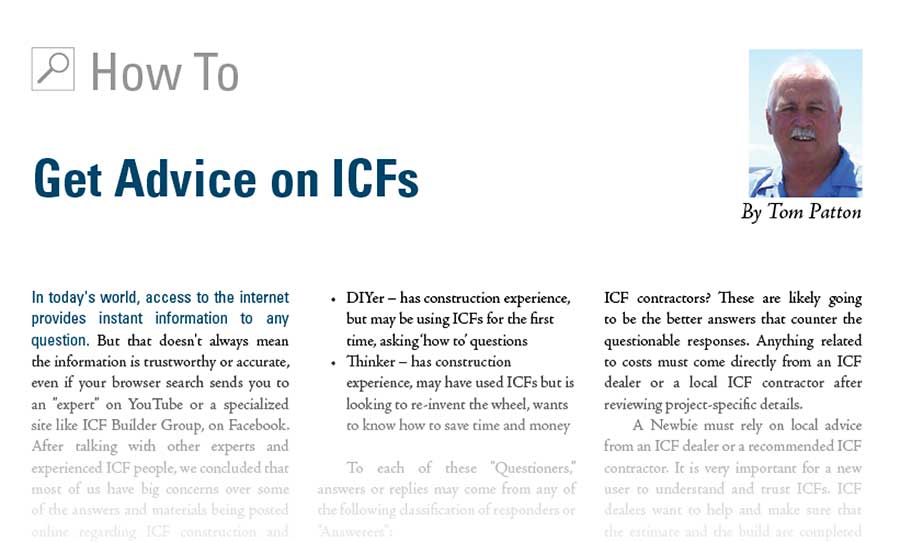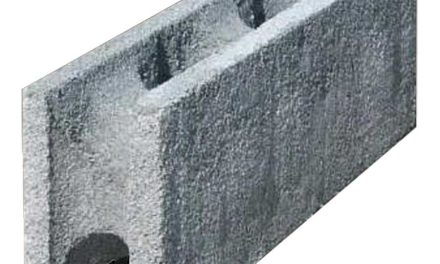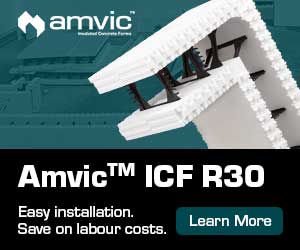In today’s world, access to the internet provides instant information to any question. But that doesn’t always mean the information is trustworthy or accurate, even if your browser search sends you to an “expert” on YouTube or a specialized site like ICF Builder Group, on Facebook. After talking with other experts and experienced ICF people, we concluded that most of us have big concerns over some of the answers and materials being posted online regarding ICF construction and applications.
The objective on how to get advice is to make the “Questioner” understand the value of the answer and examine where the answer comes from. An internet search will typically lead someone to the website links of ICF manufacturers, which is the best place to find the right answers. Asking on social media, even in specialized groups, opens the responses to all types of responders, or “Answerers.” This is certainly not meant to say that all the answers are incorrect, but in surveying the responses we have seen, we have come across problems. Some do not follow building codes, engineering, building science, or ICF manufacturer recommendations. So how does a “Questioner” know where to go to get answers, and how to decipher the answers? To this end, we need to first analyze where the questions come from, and then explore the answers.
Basically, there may be three classifications of “Questioners”:
- Newbie – very little experience in construction, building materials in general, and specifically ICFs. Could be a homeowner, contractor, or designer.
- DIYer – has construction experience, but may be using ICFs for the first time, asking ‘how to’ questions
- Thinker – has construction experience, may have used ICFs but is looking to re-invent the wheel, wants to know how to save time and money
To each of these “Questioners,” answers or replies may come from any of the following classification of responders or “Answerers”:
- ICF manufacturer technical representative
- ICF sales rep promoting their product
- ICF-experienced contractor (they may have worked with ICFs, but it could be difficult to confirm what their experience is)
- One-time ICF user who had a good build and may be dedicated to one product
- One-time ICF contractor who had a bad build
- Conventional contractor who does not promote ICFs
- ICF homeowner
- Someone who promotes cutting corners with advice on non-standard methods
- Anyone with an opinion
The first clue is to look at the question itself. A typical question may be, “What is the cost of an ICF house?” This is an ambiguous question that will never get a correct answer because there are too many variables. Then, look at the answers. How many, if any, responses are made by ICF manufacturer reps or experienced ICF contractors? These are likely going to be the better answers that counter the questionable responses. Anything related to costs must come directly from an ICF dealer or a local ICF contractor after reviewing project-specific details.
A Newbie must rely on local advice from an ICF dealer or a recommended ICF contractor. It is very important for a new user to understand and trust ICFs. ICF dealers want to help and make sure that the estimate and the build are completed correctly and efficiently. The Newbies are very vulnerable to any advice and may pursue the questionable advice as the correct path, leading to a bad experience.
The DIYer may have specific details to resolve or questions about compatible product applications. They may get the right answers from social media if the question is specific. Generally, the ICF manufacturer, from experience, has details, technical documents, or engineering to answer any and all application issues. Major ICF manufacturers generally offer a video library, detailing many applications. Many DIYers may look for shortcuts either to save time or money. So, if they get an answer that details the “easy way,” they may take that path even though it may not be the best path. A typical question from a DIYer may be something like, “Does the concrete need to be consolidated?” The correct answer, for all ICFs with a typical ICF concrete mix design, is yes. But there are more complex concrete mix designs that do not require consolidation. These special mix designs require more expertise and knowledge in placing the concrete, so it is only recommended for experienced contractors. Similarly, a DIYer may have a question regarding placing concrete in 16-foot-high walls. This also requires an experienced contractor who understands the pressures related to concrete placement. In these cases, for the level of expertise of a DIYer, the ICF manufacturers’ recommendation is to stay with the regular standards for design and applications. Always second guess any social media advice related to engineering or installation standards.
The Thinker is the hardest Questioner to satisfy. For some reason, they want to re-invent the wheel and ignore the years of ICF development, engineering, and code standards. There are specific reasons why rebar is used and spaced per the engineering. There are specific reasons why concrete is designed for ICFs, the placement method is specified, and consolidation is recommended. Over-designing ICFs, i.e., using 12-inch concrete cores for residential walls, defeats the advantages of ICFs with thin wall reinforced concrete. When experimenting in building with ICFs, some methods will work but others may not be feasible. When a Thinker provides advice, it must be evaluated to ensure it meets code, engineering, building science, and most of all the ICF manufacturers’ recommendation for the use of the product. As mentioned earlier, experience is a key element if non-standard approaches are taken.
Everyone who has built with ICFs or lives in an ICF home is eager to provide comments and advice. Manufacturers encourage that because it is a unique experience and one that they hope is or has been rewarding. The ICF industry has evolved over the last 50+ years with better block designs, manufacturing specifications, testing, and code standards. Every major ICF manufacturer has a detailed website with product information, design details, engineering references, technical documents, and installation guides. The first avenue for any questions, from any classification of Questioner, should always be to an ICF manufacturer or an ICF dealer in your local area. Also, check out the ICFMA (Insulated Concrete Form Manufacturers Association, (www.icf-ma.org) for links, engineering, and case studies. The International Residential building code (IRC) is free to view. ICF engineering tables are detailed in this code (codes.iccsafe.org/content/IRC2021P1).
To gain the best possible answer, add in as much detail as possible to the question. The bottom line is to evaluate all responses from social media. Answers must meet building code standards, engineering principles, and manufacturer recommendations for the area of construction. Because ICFs create the structure of the building, the design and installation requirements may be different related to many localized variables such as local codes, climate, seismic, wind, soils, etc. Building in the southern U.S. is not the same as building in the north, east, or west. If you are not sure about a response you got, talk specifically to a manufacturers’ rep, dealer, or experienced ICF contractor. Understand that you will be building a high-performance, reinforced concrete building, following specific design and application principles that have been developed and are used as standards. Use and follow the free advice offered by ICF manufacturers — installation instructions, technical documents, and details, that will make the design and build easier and more efficient.
ICFs have been designed as an easy and efficient building product. Be aware of advice that is outside the norm. Don’t fall for fake information or alternative facts. When you get right advice, you can be sure to get the ICF home or building of a lifetime.
Tom Patton
Tom Patton had a 30-year architectural design background prior to joining the ICF industry in 2001 with the technical support department at ARXX. Over the last 20 years, Tom has worked with major ICF companies developing technical documentation, application details, and training programs, as well as consulting and promoting ICFs with various associations including the ICFMA, NRMCA, and codes and standards committees. Currently, Tom is Corporate Brand Ambassador for Fox Blocks and co-developer of the Fox Blocks Integrated Learning Center.













